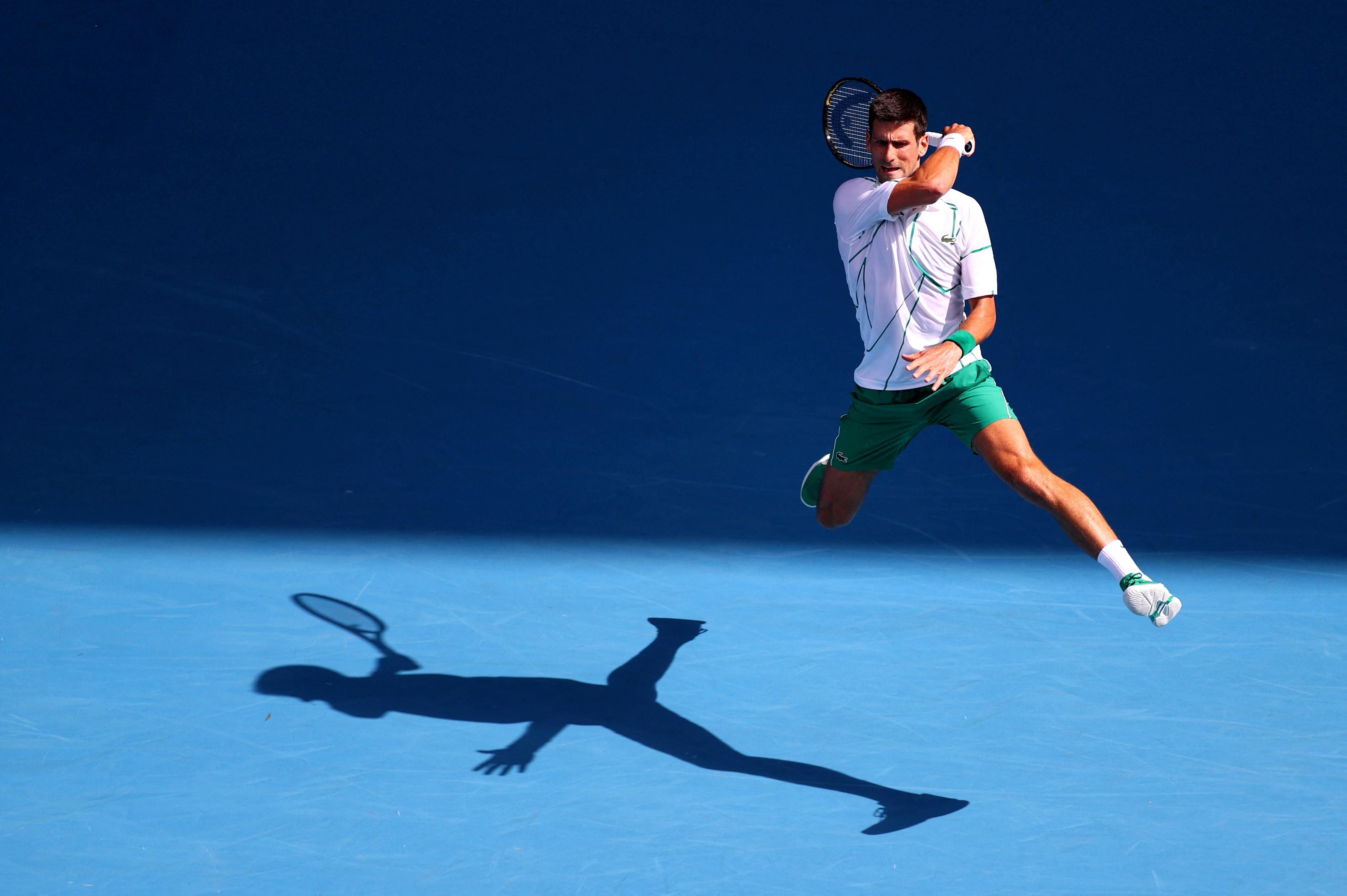January 07, 2022
You’ve probably read this week that Novak Djokovic, the world’s number-one ranked tennis player, was caught in an awkward standoff with Australian border police.
A quick catch up: Upon arriving in Melbourne for the Australian Open, one of the world’s four Grand Slam tennis tournaments, the unvaccinated Serbian tennis star was denied entry by federal authorities who said he did not meet the criteria for a vaccine exemption and so does not satisfy entry requirements.
Djokovic explained that he was previously granted a vaccine exemption by Tennis Australia and the Victorian state government. The feds were unmoved.
Djokovic is no stranger to whacky health and conspiracy theories. He is a proponent of holistic healing (nothing wrong with that), but he has also said that you can make toxic water drinkable simply by using “the power of your mind.”
If you are pro-science – and/or a person who has missed out on family milestones over the past 24 months by honoring travel rules – it’s easy to criticize Djokovic, who seems to think his trophy case entitles him to special consideration. But this flare-up isn’t really about the tennis star’s predilections for natural (or unnatural) remedies.
As the highly transmissible omicron sweeps the globe, perhaps redefining the trajectory of the pandemic, many argue that vaccine mandates for cross-border travel are superfluous. Others say these requirements remain crucial to protect public health.
Here are some good arguments on both sides.
The pro-mandate camp
Preliminary data suggest that omicron is much less likely to hospitalize or kill the infected, thanks in part to the most effective vaccines. Still, the variant’s unprecedented rate of transmission means that even if a smaller percentage of infected people need medical care, the overall larger number of infected people can still fill a city’s hospital beds.
In the US and parts of Europe where vaccination rates remain sluggish, mandates would prevent non-vaccinated foreigners coming in who might place even more burden on already-swamped healthcare systems. Vaccine mandates for border crossers aren’t foolproof. But they are the best protection we’ve got in speeding the shift to endemicity.
Moreover, some vaccines still offer some protection against the antibody-evading omicron strain. This is particularly true for those who have been fully vaccinated and boosted with an mRNA shot. Indeed, the more people that get vaccinated, the less opportunity the virus will have to spread and mutate, threatening those who are vulnerable to severe illness. Requiring vaccines for all international travel will force many fence-sitters and skeptics to get the shot. Consider this: If Djokovic was told from the get-go that exemptions weren’t an option, would he still have resisted the mandate and given up his spot in four Grand Slams this year?
The anti-mandate camp
A majority of the world’s vaccinated people has received a non-mRNA shot from Johnson & Johnson, Oxford-AstraZeneca, Russia’s Sputnik V or China’s Sinopharm or Sinovac. These vaccines don’t appear to block omicron as effectively as mRNA vaccines. Sinopharm and Sinovac, which account for roughly half of all shots delivered globally, provide no protection against infection at all (though they still appear to provide some protection against severe illness). Vaccine mandates for travel become obsolete when even vaccinated people have a high chance of turning up a positive result.
Some have argued that to give Djokovic a special tennis pass when Australian citizens living abroad weren’t able to return home for close to two years is a slap in the face to those who respect rules. But public health policy should be based on science-based reasoning and logic – not driven by political principle.
Additionally, there have been some studies that show that virus acquired immunity provides broader protection from reinfection than vaccination immunity. If so, exposure to omicron, which comes at low personal risk, coupled with vaccination – a concept known as hybrid immunity – could be the fastest way to reach herd immunity (and end the pandemic), a sentiment supported by Israel’s health minister.
Ramanan Laxminarayan, an epidemiologist, told the New York Times that “the combination of vaccination and exposure to the virus seems to be stronger than only having the vaccine,” adding that India and Brazil may therefore be better positioned to deal with the omicron wave than countries that have experienced lower infection rates.
So, were the Aussies right to ban the unvaccinated Novak Djokovic? Let us know what you think.
More For You
Most Popular
With the US leading production and China driving new reactor development, Bank of America breaks down the who, what, where, when, and why behind nuclear’s return. Stay ahead of global energy trends with Bank of America Institute.
Chris, an Army veteran, started his Walmart journey over 25 years ago as an hourly associate. Today, he manages a Distribution Center and serves as a mentor, helping others navigate their own paths to success. At Walmart, associates have the opportunity to take advantage of the pathways, perks, and pay that come with the job — with or without a college degree. In fact, more than 75% of Walmart management started as hourly associates. Learn more about how over 130,000 associates were promoted into roles of greater responsibility and higher pay in FY25.
Last week, at the Munich Security Conference, a group of global technology providers, including Microsoft, announced the Trusted Tech Alliance — committed to shared, verifiable principles for trusted, transparent, and resilient technology across borders. At a moment of economic volatility and zero-sum technological competition, countries and customers are demanding greater accountability from technology providers. The Alliance addresses this by bringing together companies from across Africa, Asia, Europe, and North America around shared commitments: transparent governance, secure development practices, supply chain oversight, open digital ecosystem, and respect for the rule of law — ensuring the benefits of emerging technologies strengthen public trust while driving job creation and economic growth. Explore the Trusted Tech Alliance here.
© 2025 GZERO Media. All Rights Reserved | A Eurasia Group media company.
